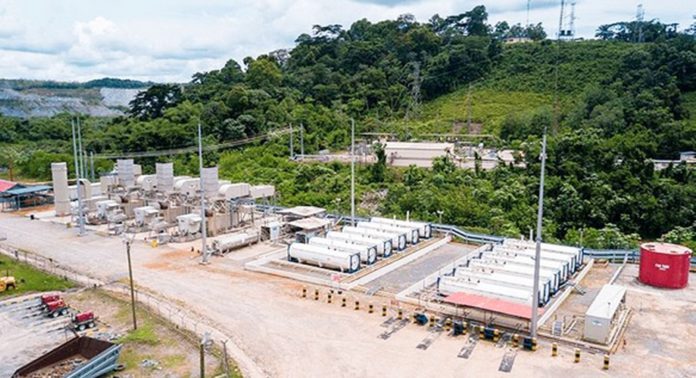The Parliamentary Select Committee on Mines and Energy has stated that the country saved about $1.5 billion from the Gas Sales Agreement between the Ghana National Petroleum Corporation (GNPC) and Genser Energy Ghana Limited (GEGL).
The contract is to deliver 329 million metric British Thermal Unit (mmBTU) of gas to the GNPC for 16 years.
The committee said the sales agreement would also reduce the transmission losses by $480 million when the Ameri plant is relocated to Kumasi and made operational.
The parliamentary probe follows criticisms by some civil society organisations last year that the agreement would cause financial loss to the state.
The committee said in its report that after a careful evaluation of testimonies from stakeholders, the country would derive some benefits from the sales agreement.
Civil society groups, IMANI Africa and the Africa Centre for Energy Policy (ACEP), alleged that Ghana bought gas for $95.8 million and sold to the Genser Energy Ghana Limited (GEGL) for $43.5 million, accounting for a $1.5 billion financial loss to the state.
Parliament’s Mines and Energy Committee interrogated the management of the GNPC and the Ministry of Energy over the said gas supply deal with Genser Energy, which IMANI Africa and ACEP had criticised.
The sales agreement was signed in 2020 and amended in 2021 following a directive from the Ministry of Energy.
11-month probe
But after an 11-month-long investigation, the parliamentary committee enquiry report, seen by the Daily Graphic, indicated that the sales agreement between the GNPC and Genser Energy would offer a cheaper and cleaner alternative to diesel for industry, which could boost economic growth and development.
The GNPC officials, during the committee’s probe, testified that the GNPC had an option to buy a primary pipeline at a price between $125 million and $145 million, with an additional $54 million for a branch line.
The GNPC, however, instead made a deal with Genser Energy, allowing them to invest $170 million for a pipeline extension.
“ The GNPC then retained the right to transport its gas for free along the new pipeline route to Kumasi.
The difference in commodity prices serves as the pipeline financing cost, specifically for the Nyinahin-Kumasi pipeline.
The GNPC can buy the Genser Energy primary pipeline at $33.88 million plus a reasonable return.”
As such, the committee posited that the claim that GNPC was losing $1.5 billion was based on confusion regarding the GEGL’s Gas Discount Charge for shortfall payments and that keeping the GNPC-Genser deal actually resulted in a gain of $1.462 billion for the GNPC.
Computations
The committee found the computation methods used by the ACEP and IMANI faulty.
The CSOs calculated a hypothetical loss based on the contractual sum of $2.79/mmBTU but that price reflected offsets from a capacity charge of $3.29/mmBTU.
The agreement, the report said, also had other benefits such as reducing carbon dioxide emissions, increasing port revenue, creating jobs and extending the life of mines.
The report stated that the deal would enable the GEGL to expand its business operations in Ghana, which would create more employment opportunities for Ghanaians.
The GEGL is a private company that provides power generation and gas supply solutions in Ghana.
It has invested over $980 million in Ghana and operates several power plants and gas pipelines across the country.
The Ranking Member of the committee, John Abdulai Jinapor, however, disagreed with the committee’s findings, saying the agreement would lead to significant losses for the state.
ALSO READ:

